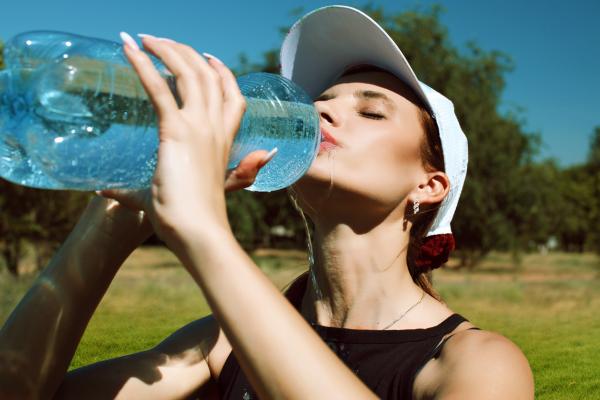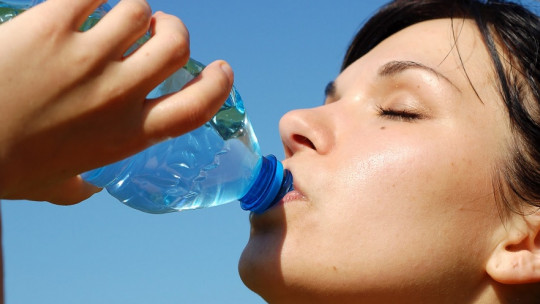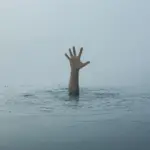Should potomania or water addiction be considered a disorder? Unfortunately, there are no exact data on the incidence of potomania even worldwide or in developed countries. What we can say with certainty is that although water is necessary and healthy, anything in excess can be harmful to our health.
It is true that sometimes we become obsessed and pay too much attention to leading a completely healthy life, going so far as to exceed some limits without even realizing it. If it has caught your attention and you want to know more about potomania, keep reading! In this PsychologyFor article we explain What is potomania, symptoms, causes, treatment, consequences and differential diagnosisso you know how to distinguish it from other disorders.
What is potomania
Potomania consists of a behavioral disorder that includes urgent need to drink large amounts of water and, failing that, any other liquid. Achard and Ramon (1905) were the first to detect the symptoms of this disorder, initially calling it: thirst neurosis or thirst vesania.
It is difficult to place this disorder in one of the categories of the traditional diagnostic system. Potomania is generally considered an eating disorder not otherwise specified (EDD). Broadly speaking, it would be a anxiety disorder (neurotic polydipsia).
Although, due to the characteristic way in which it manifests, it could be considered an impulse control disorder or an obsessive-compulsive disorder. That is why a good differential diagnosis is important in cases of potomania.
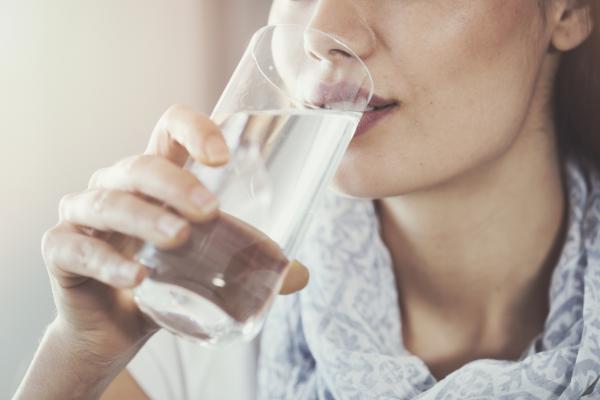
Symptoms of potomania
If you are wondering “How to detect potomania?”, pay attention to the following symptoms of water addiction that we can observe in people with this problem:
- Water intake that can fluctuate between 8 and 15 liters.
- Compensatory behaviors.
- Anxious symptoms.
- Feelings of blame.
- Very restrictive behaviors.
- Feeling of anguish.
- Irritability.
- Urinating very frequently.
Causes of potomania
There is no single factor that determines the cause of potomania and other EDs, as always, it is due to the interaction between genetics and environment and in this case, surely the environment has a much greater weight.
Eating disorders, such as water addiction, usually appear during adolescence, with a higher prevalence in women between 12-18 years old. It is known that during adolescence physical, psychological, social, biological and physiological changes begin to be experienced.
Insecurities and situations appear that are beyond the control of young people. Hormonal changes in girls can cause greater physical changes and weight gain at certain stages of the menstrual cycle, which can make them more prone to these types of diseases.
On the other hand, we must keep in mind the social pressures to which young people are subjected with social networks. “Perfect and model” bodies that cause pressure and dissonance, while distorted image of their bodies.
The lack of information or the deficiency in the interpretation of certain information can lead people to practice unhealthy behaviors.
Some specific factors that can trigger the appearance of potomania or water addiction are:
- Anxiety disorders.
- Personality disorder.
- Delirious paintings.
- “Hysterical” symptoms.
- Alterations in the functioning of the hypothalamus. The hypothalamus is the part of the brain responsible for the perception of thirst; a malfunction of this mechanism could trigger episodes of thirst.

Potomania treatment
In this case, the treatment of potomania or water addiction would be the same that we would use in cases of ED (eating disorders) since it is these behaviors that are altered.
- Psychological treatment : On a psychological level, the therapy that has shown greater effectiveness so far is cognitive therapy. In which cognitive restructuring is prioritized due to negative thoughts associated with body image.
- Intake restriction : another technique that has proven effective in the treatment of potomania would be to restrict fluid intake to 1 liter daily, and keep patients, if admitted, in a warm room after meals, as has been done. made with another type of TCA. This reduces your anxiety and activity level.
- Treatment with psychotropic drugs : In extreme cases of water addiction, it could be treated with psychotropic drugs to reduce anxiety levels.
In any case, it is always important to know the specific causes of potomania in each case in order to apply the best treatment. Therefore, we remember that this article is merely informative. At PsychologyFor we do not have the power to make a diagnosis or recommend a treatment. We invite you to go to a psychologist to treat your particular case.
Consequences of potomania
What organs does potomania affect? By drinking large amounts of water, it can cause hyperhydration in our body, which could lead our body to produce an excessive dilution of sodium in the blood, causing hyponatremia and other endocrine disorders.
Now, what causes potomania in case of hyponatremia? If it appears gradually, we can notice the following symptoms:
- Lethargy or lack of concentration.
- Alteration of internal balance, which appears abruptly.
- Vomiting and problems with balance.
- Seizures.
- Confusional syndromes or even coma.
- Death in extreme cases.
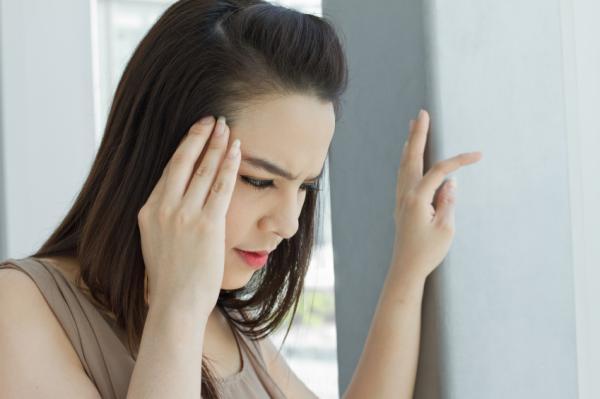
Differential diagnosis of potomania
Ajuriaguerra (1976-1982) points out that the differential diagnosis of water addiction must be very careful and eliminate any organic cause, before being able to conclude with the diagnosis of potomania. The possibility that it is one of the polyuro-polydiptic syndromes (diabetes mellitus, nephrogenic diabetes insipidus, etc.) of organic etiology must be eliminated.
It should be said that the differential diagnosis between diabetes insipidus without clear organic modification and potomania is especially delicate. Therefore, the first thing we must rule out any organic cause which may result in an increase in water intake.
If you liked this article about water addiction or potomania, we recommend you read another of our posts linked to EDs (eating disorders), it is about Drunkorexia: what it is, symptoms, causes and treatment.
This article is merely informative, at PsychologyFor we do not have the power to make a diagnosis or recommend a treatment. We invite you to go to a psychologist to treat your particular case.
If you want to read more articles similar to Potomania: what it is, symptoms, causes and treatment we recommend that you enter our Clinical Psychology category.
- American psychiatric association, (2014). Diagnostic and Statistical Manual of Mental Disorders DSM – 5. Madrid Spain. Pan-American medical publishing house.
Bibliography
- del Águila, M. Á., Sánchez, MP, & del Águila, E. (2017). Identification of the different types of eating disorders and their characteristics. Health and care during development1(1), 27-32.
- Macià, D., (1985). Behavioral-cognitive treatment of a case of potomania. Behavior Analysis and Modification, 11(29), 471-481.
- Martínez, AG, López-Espinoza, A., Navarro, M., López-Uriarte, P., & Salazar, JG (2014). Drinking behavior disorders: a research proposal. Mexican magazine of eating disorders, 5(1), 58-69.

